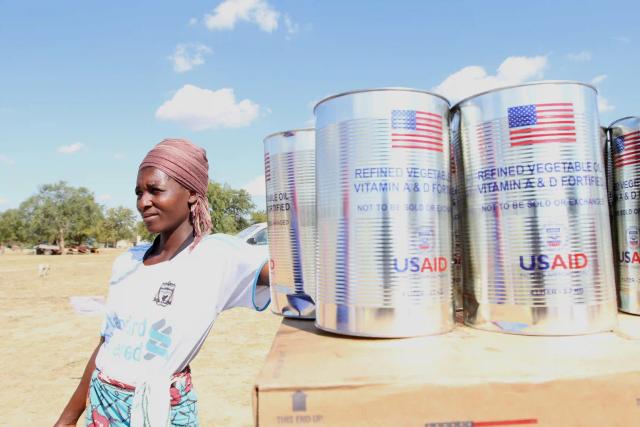USAID Gives $8.7 million To WFP For Zimbabwe Food Resilience Programs

The United States Agency for International Development (USAID) has provided a grant of US$8.7 million to the United Nations World Food Programme (WFP) to support resilience-building programs for over 65,000 people in five food-insecure communities in Zimbabwe. The funding will be used to provide food assistance in exchange for work, develop small-scale farming infrastructure, establish village savings and lending groups, and provide training in business management in several districts, including Kariba, Masvingo, Mwenezi, Rushinga, and Zvishavane.
The WFP’s Food Assistance for Assets programs will prioritize immediate food needs through food distributions while investing in productive assets to mitigate future food crises and reduce humanitarian needs. The participants will receive monthly food allotments consisting of maize meal, pulses, and cooking oil for the duration of the work, while the entire community will benefit from the completed assets. WFP has expressed gratitude for the continued support of the US government in enabling vulnerable communities in Zimbabwe to withstand the negative impact of climate change and recurrent economic shocks.
In a statement, WFP said the initiative is designed to meet immediate food needs through food distributions while investing in productive assets. WFP acting country director, Ms Christine Mendes, said:
Participants will receive monthly food allotments consisting of maize meal, pulses, and cooking oil for the duration of the work while the entire community benefits from the completed assets. Participants also receive training on insurance and financial inclusion and food processing and are linked to nearby markets.
Ms. Mendes praised the US government for supporting Zimbabwe’s vulnerable communities in combating the negative effects of climate change and economic shocks. She emphasized the importance of transformational activities in empowering communities to mitigate future food crises and reduce humanitarian needs. Since 2011, over 1.2 million people in 30 districts have benefitted from WFP-supported productive assets, including 400 small dams, 80 irrigation systems, and 60 solar-powered boreholes. The WFP has also helped establish 520 hectares of vegetable gardens.
Latest Samsung Galaxy A05s available on Pindula:
128GB storage, 6GB RAM
$148 USD
WhatsApp +263715068543
According to the USAID acting mission director, Mr. Ramses Gauthier, the US government’s continued funding for the Food Assistance for Assets program illustrates its dedication to resolving food insecurity in Zimbabwe. He expressed satisfaction in collaborating with a competent, willing, and capable partner, the World Food Programme, to achieve this crucial objective.
Food insecurity has been a significant problem in Zimbabwe for many years, with a large portion of the population experiencing malnutrition and hunger. The situation has been exacerbated by various factors, including economic challenges such as high unemployment rates, a weak currency, and limited foreign investment. Climate change has also had a significant impact on the country’s agricultural sector, leading to reduced crop yields, soil degradation, and water scarcity. These factors have contributed to widespread food shortages, particularly in rural areas where the majority of the population is engaged in subsistence farming.





